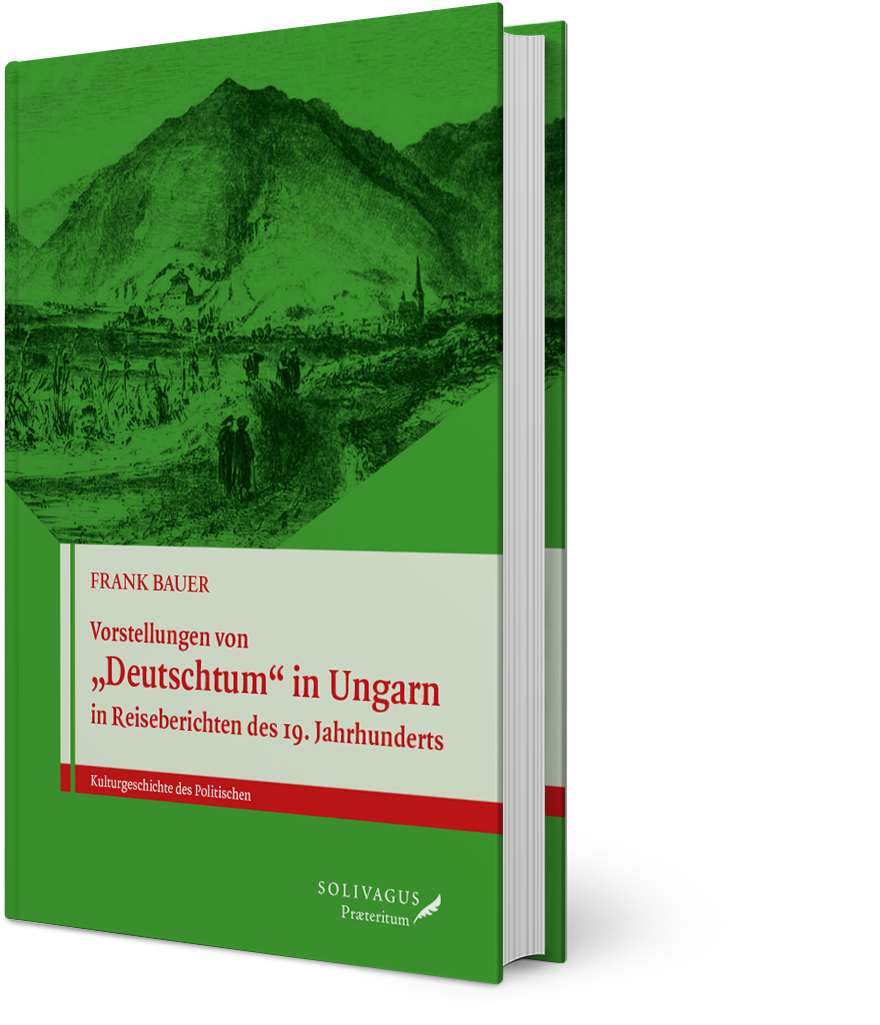Vorstellungen von “Deutschtum” in Ungarn in Reiseberichten des 19. Jahrhunderts.
[Perceptions of “Germanness” in Hungary in Travelogues from the 19th Century.]
From the Middle Ages, the German-speaking minority in the Kingdom of Hungary played an important role in the economic and cultural life of the country. Frank Bauer with a cultural historical approach analyzes the portrayal of this section of the population in travelogues from the 19th century. Which topoi and narratives did their authors connect with the “Deutschungarn”? Which trends and caesuras can be observed in these allocations? Where and how were they placed in space on a mental map? Frank Bauer looks at those discourses in which the authors were searching for the “cultural denominator” of the Deutschungarn. He also analyzes how they were distinguished from the Magyars, the Romanians, and the Slovaks. Bauer proves the virtues allocated to the Deutschungarn by the authors were virtually similar to the contemporary (self-)perception of the German Bürgertum and that they were closely interlinked with the beginning debate about colonies and colonialism in Imperial Germany.
Solivagus Praeteritum
370 Pages, Hardcover, Thread-Stitched, Figures and Tables, Date of Publication: Winter 2018, Format: 14,8 x 21 cm
Not yet available. To be published Winter 2018.

